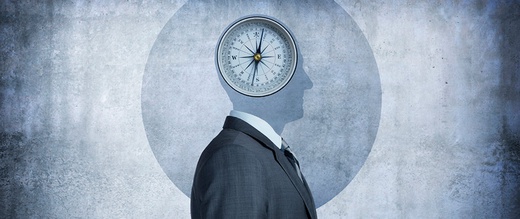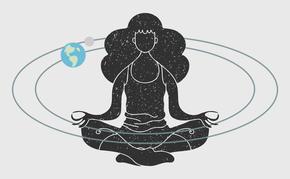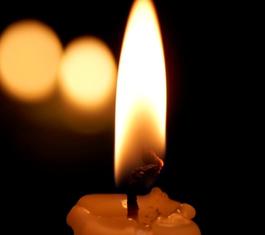The views expressed in our content reflect individual perspectives and do not represent the authoritative views of the Baha'i Faith.
Do you remember the first time you felt bad about something you did?
I remember it clearly—in fact, it’s one of my earliest memories. At the ripe old age of two and a half, I already had a little brother and a new baby sister. My mother made cookies for my brother and I and our cousins, who planned on visiting to meet the new baby that night. She baked the cookies, put them in our cookie jar in the kitchen, and said “David, don’t eat any of these—we need to save them for tonight.”
You can probably guess what happened next.
Yup—my desire for the cookies overcame my ability to follow my mother’s instructions. As soon as the coast was clear I climbed up on the kitchen counter, opened the forbidden cookie jar, grabbed a few warm cookies and zip, down the hatch they went. Delicious. They were so good I had some more.
After dinner, when my cousins arrived, I heard my mother yell “David Eric!” from the kitchen. You know it’s not going to turn out well when your mom takes your middle name in vain.
She didn’t spank me or anything, but the way she looked at me seemed even worse than any physical punishment. I distinctly recall the expression of utter disappointment on her face when she saw that empty cookie jar and then looked at me. I had let her down, disobeyed her and deprived my brother and my cousins of their cookies. I felt terrible, and it wasn’t just my indigestion. I felt like I had deeply disappointed her, but something else occurred to me at that moment, as well. I had disappointed myself. A little voice inside me told me I had done something very wrong, which made me feel really bad.
This inner self-disappointment took me by surprise. I realize now that I had just experienced the first stirrings of my conscience, the inward intuition and judgment that helps us all distinguish right from wrong. I can tell you this—it wasn’t a pleasant experience. I can remember thinking: Where did this bad feeling come from? I wondered why I felt so terrible, so ashamed of myself, so filled with remorse. I loved my mother, and I had disappointed her. I told my mother I was sorry, and she made me go to my brother and my cousins to apologize to them. That was really hard. I had to admit I’d done something wrong, and say I was sorry over and over, which made me feel even worse about myself.
So I’ll ask you the same question that occurred to me then: Where does this feeling of shame and remorse, this inner arbiter of right and wrong, the human conscience, actually come from? Where does it originate? Do we get it from genetics or upbringing, nature or nurture?
Many believe our conscience is innate, that each person comes equipped with one at birth. Some disagree, and say we simply “imprint” or learn our moral standards from our parents, our culture and our peers. However, several recent research studies indicate that pre-verbal babies have altruistic, conscientious behavioral tendencies, which calls the “nurture” hypothesis into serious question.
The human conscience has even become one of the latest battlegrounds in the modern debate between faith and atheism—people who have a religious or spiritual perspective tend to believe that every person has a God-given conscience; and atheists obviously have a hard time with that conclusion, so they typically maintain that it comes from our genetic makeup or the training we get as children.
No matter where conscience comes from, though, we all have a stake in increasing its impact and effectiveness. If everyone had a well-developed conscience, if most of us followed the Golden Rule, if our collective human conscience prevented the war and crime and harm and pain so many people suffer from, the world would become a much safer, healthier and happier place.
How can we do that? What can each person do to increase the world’s overall capacity for conscience—in their children, their families, their friends? To answer those important questions, let’s look at some deep wisdom on the origins of our conscience. The Baha’i teachings suggest that our conscience comes with our soul, given to each of us by the Creator:
Why should man, who is endowed with the sense of justice and sensibilities of conscience, be willing that one of the members of the human family should be rated and considered as subordinate? – Abdu’l-Baha, The Promulgation of Universal Peace, p. 107.
When man in response to the favors of God manifests susceptibilities of conscience, the heart is happy, the spirit is exhilarated. These spiritual susceptibilities are ideal thanksgiving. – Ibid., p. 236.
O God! Sanctify me from all else save Thee, purge me from the dross of sins and transgressions and cause me to possess a spiritual heart and conscience. – Abdu’l-Baha, Baha’i Prayers, p. 152.
…ye have investigated the truth and have been freed from imitations and superstitions, that ye observe with your own eyes and not with those of others, hearken with your own ears and not with the ears of others, and discover mysteries with the help of your own consciences and not with those of others. – Abdu’l-Baha, Selections from the Writings of Abdu’l-Baha, p. 29.
The way Abdu’l-Baha frames the concept here—“…cause me to possess a spiritual heart and conscience”—indicates that the conscience has a wide range of potential development. Like the heart, the mind and the soul, the human conscience can span a broad spectrum, from barely functional to highly-advanced, from material to spiritual, from sociopath to empath.
You’ve probably encountered people on both ends of that spectrum, including those who seem to have no problem hurting others, and those who do their utmost to prevent such hurt. These moral outcomes, and the spiritual character that people develop from their actions, happen as a direct result of the relative functionality of each person’s conscience. In people with an evolved, well-developed conscience, we tend to see highly-advanced levels of morality, along with a large, selfless capacity to love others. In those with a weak or non-functioning conscience, we tend to see patterns of dominance, violence and criminality (and the theft and rapid consumption of newly-baked cookies).
In the next article in this series, we’ll look at that spectrum, and see what happens when human beings have no conscience.

















Comments
Sign in or create an account
Continue with Facebookor